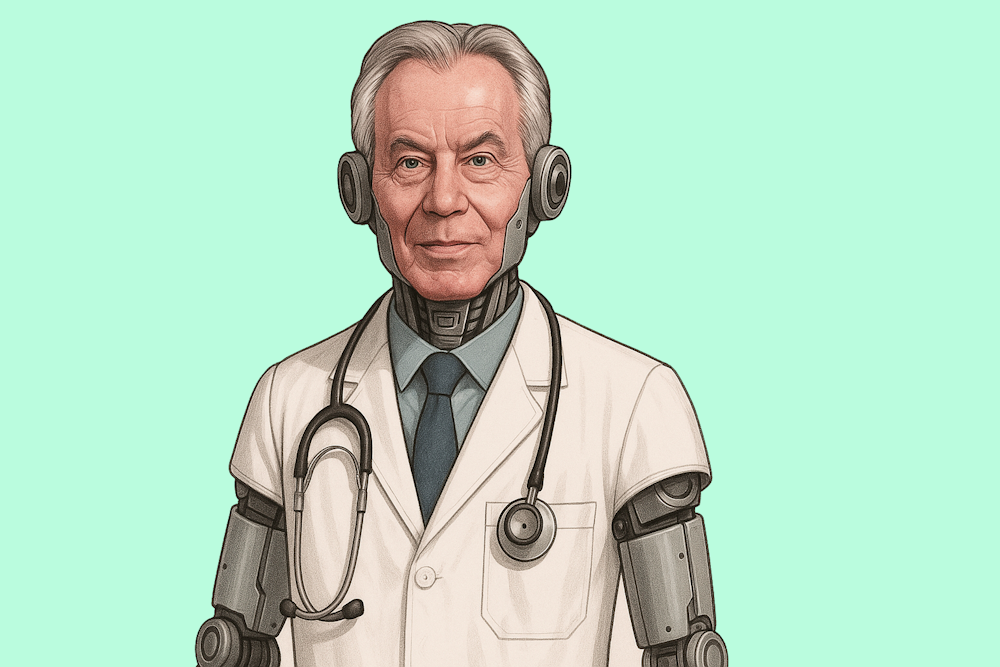Article
The future of medicine is less Black Mirror and more Golden Ticket

Dystopian anthology show Black Mirror recently released its latest series, with previous incarnations warning of the perils of medical technology and human failings. But the real world of healthtech is much more optimistic than you’d think.
The COVID pandemic has increased human interest, not to mention investment, in advanced healthcare technology – anticipating the next big health challenges and taking aim at age-old problems in human health. London Tech Week in June placed such faith in the industry that the largest category of talk focused on Health and Wellbeing.
Over the next decade healthtech is set to undergo an even greater level of investment and solve some of the most fundamental healthcare problems we face today. Let’s look at some of the areas of greatest interest.
mRNA – The punch card for modern medicine
Public awareness for mRNA thanks to the Pfizer/BioNTech Covid vaccine positions it as one of the most understood medical techniques, but to many the sheer scale of this medical innovation has not quite been realised.
mRNA forms a naturally occurring part of the human body, taking the information from our DNA and allowing it to be translated into all the proteins our body needs to grow, fight disease, repair damaged tissue, and release hormones.
The mRNA in this way acts as a piece of code, and if we can develop our own version of this organic code and introduce it into human cells, then there is almost no limit to what we can make our cells produce. The Pfizer vaccine demonstrated its feasibility, and now we can use this process to rapidly make new vaccines for infectious diseases and potentially even cancer. There is even potential for mRNA to be used in wound and bone repair, taking advantage of the body’s own healing properties and boosting them for patients requiring more support.
Personalised medicine
Buzz words like “personalised medicine” are all the rage in the boardrooms of biotech firms, but the mass media awareness for this concept has been slower to materialise. The process of personalised medicine is simple enough, each person is unique in regards to their genome and their conditions – we should take a unique approach to their treatment based on this information.
The human genome project was first completed in 2023 after over 10 years of research into one individual’s DNA. This gargantuan effort to read all the information enclosed in our cells is becoming more and more simple, and it will not be long before sequencing the entire genome of an individual patient is routine practice when treating patients with specific conditions.
In the coming decades small firms focused on researching human DNA, highlighting and identifying problematic genetic markers, and developing unique treatments will see an increase in prevalence, and health outcomes around the world will benefit as a result.
Cell therapy – using human cells to treat human conditions
Traditional medicine uses small molecules to treat disease, think of antibiotics or painkillers and how they interact with specific targets within the body. But cell therapy represents the next generation of advanced therapeutics, taking the complexity of human cells and transfusing them in order to help boost the immune system or replace damaged tissue.
The first cell therapies already exist in the form of CAR-T therapy, a system that involves taking human cells from the patient, modifying them with advanced cancer seeking abilities, and then transfusing them back into the patient to seek out and destroy cancerous cells more effectively. Using the body to treat the body.
Current hurdles in the roll out of CAR-T are that it is expensive due to its individualistic nature, but researchers are making progress in “off-the-shelf” treatments that would take cells from a donor or grown in a lab and using them to improve the body’s ability to repair and treat disease. Soon the treatment for liver failure will no longer involve waiting on long lists for transplants, but taking human stem cells and using them to grow replacement tissue and grafting it into a patient.
AI and data in healthcare – hype or hope?
A big topic at London Tech Week this year was the growing role of data and AI in the improvement of healthcare outcomes. Data is continuing to underpin every section of our daily lives and therefore it makes sense that it would be incredibly relevant to this cutting-edge sector.
Data is being presented as the solution to not just medical research, but also the wider healthcare sector – cutting waiting times, training the next generation of doctors and nurses and relieving the burden on the NHS. Advanced AI based on impossibly large amounts of data is even being tested for its potential in replacing doctors and therapists as the first line of medical diagnosis.
While this area of research remains in its infancy, we are sure to see the impacts of it over the coming decades – although whether an AI therapist will replace a human still remains to be seen. The modern world produces huge amounts of data, and processing it, not harvesting it, has become the main challenge. Artificial Intelligence is stepping up to fill this gap and healthtech is likely to be a pioneering area for this groundbreaking technology.
The importance of communication
The 2020s will become infamous for starting with the biggest health crisis to hit humanity in over a century, but ultimately it will go down as the decade when health technology entered its own arena and learning from crises humanity had the ingenuity to look to for tomorrow’s solutions.
While the solutions in this arena become more and more sophisticated, the general understanding of consumer and investor audiences will not keep up with these advances. Communicating the importance of new technologies is key to ensuring that the sector continues to get the right investment it needs to continue providing healthcare outcomes to the benefit of humanity.





